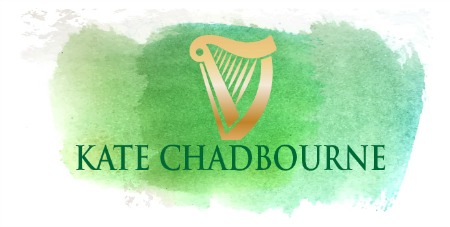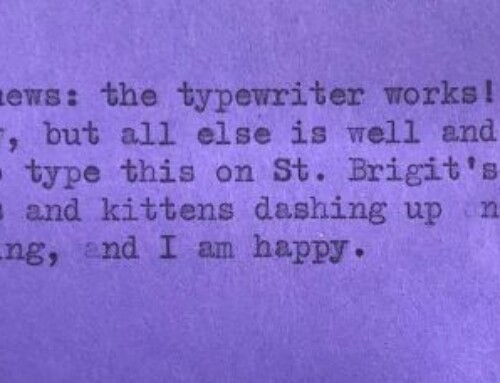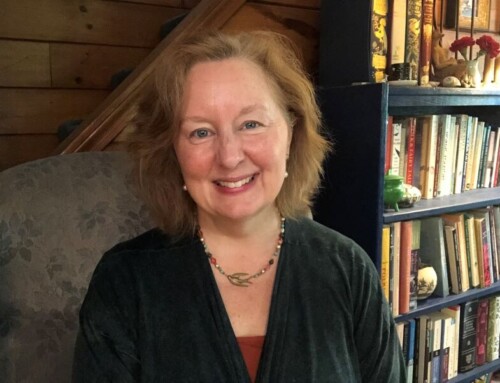Yesterday, a student asked me to write a letter of recommendation for her application to Harvard. At the end of her note, she asked for “constructive feedback” on how she could grow. This is my reply to her request, and I’m sharing it in hopes that it might reach the eyes of other high school students and that if it does, it is helpful.
Dear E,
I salute your desire to grow! That quality and orientation towards improvement will serve you well in your life, and it also keeps the spark and interest in your days. If we’re growing, we’re engaged, and if we’re engaged, we feel ALIVE. So keep going – and E, I will, too. Growing and learning don’t have an age-limit.
I hope you will allow me to be frank with you and I ask you to trust that I honestly desire to help you grow. Also, please frame what I share here as the perspective of one person who has a limited experience of you, your work, and your potential. Never let anyone define you for yourself, and that emphatically includes me.
With all of that said –
This may be disappointing to you, but I am not going to write a letter of recommendation for you to support your Harvard application. Why?
Judging by your writing and your overall participation in the class, I do not feel confident that you have a strong chance of being admitted to Harvard. That doesn’t mean that you would never be admitted, but at this time, I have serious doubt about that outcome.
What can you do to grow and improve in ways that will benefit you AND make a “yes” from Harvard more likely?
- READ – a lot more. I have taught writing at the college level for many years and now have a general “horse sense” about who reads and who doesn’t. Your essays and even your notes to me tell me that you could stand to read a lot more.
Why? The most important reason is to develop and expand your frame of reference: your general knowledge, exposure to ideas and perspectives, and sense of how things fit together. The secondary set of reasons is also important: to improve your grasp of grammar, sentence structure, vocabulary, cadence (the rhythm and sound of writing), and fluency.
What should you read?
First, choose some things to read for pleasure – anything you like. It doesn’t have to be “impressive,” but it should be something you’re eager to pick up.
Second, expose yourself in small doses to writing that feels more challenging: histories, biographies, scholarly articles on topics that interest you. Dip in. Sample a little bit and see what you learn. If you really want to go for it, choose a book and read all the way through it. Ask around for suggestions. Given your talent for photography, I wonder if you might like to read a biography of Ansel Adams or Annie Leibovitz?
- Pay more attention to instructions and follow them to the letter.
I said many times that general internet sources were not allowed for the essays, so I was surprised that you relied on them for the final essay. E, these are sub-par sources. Yes, I know it’s easier to access them than to do the work it takes to locate good scholarly sources as Ramona taught us to do. And yes, I know that you may well have run out of time and so had to use these much poorer sources, but that points to places for growth, right? And since our work is built on the quality of our sources, we need to choose the very best ones.
When it comes to Samhain and Irish calendar traditions, there are much better sources than the ones you chose.
Had you looked at those, just to take one example, you would have realized that pumpkins aren’t native to Ireland and play no part at all in an Irish Halloween. You would have discovered exciting and picturesque divination traditions that I think would truly interest you.
Just as the food we eat creates the bodies we live in, so the sources we use create our thinking and writing. Choose the best ones.
If you’re confused, ask. But DO listen carefully to instructions, read them carefully (these requirements were stated verbally many times AND noted on the syllabus and assignment sheets), and follow them carefully.
- Participate more.
Do the reading. Share your perspective. Ask questions. Speak up in the chat. Compliment your classmates and engage with their ideas.
This is basic student stuff and all essential to your success. We didn’t hear enough out of you, E. I don’t know if perhaps you felt too young and shy to pipe up (though two of your classmates are exactly your age and contributed regularly), but don’t let that stop you. Take an active role in your classes. Invest more energy.
OK, that’s plenty: lecture over! I truly hope that is helpful to you.
And may I tell you one more thing?
Harvard is a good school, of course, but there are so many others. I can well imagine you at Rhode Island School of Design, for instance, or perhaps Massachusetts College of Art and Design. Or how about investigating schools in the UK? There are some great options in London and Glasgow that might interest you.
This is all to say, there’s a beautiful big world out there for you, E. Look at all of it. Think about who you are and what you love to do. Think about the person you’d love to become. Then set your course and go for it. If one door is closed, another will open, I promise.
I’m rooting for you!
With every good wish,
Kate





